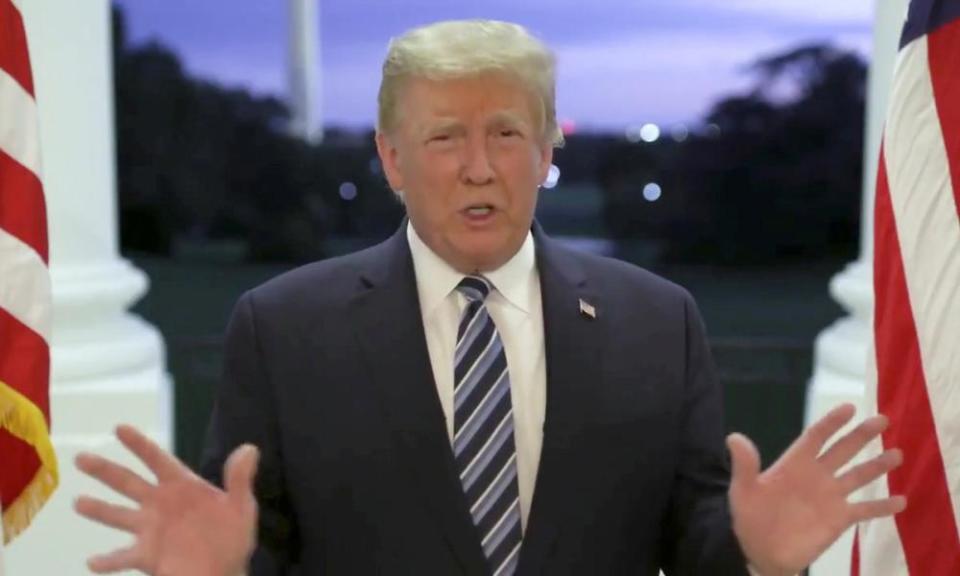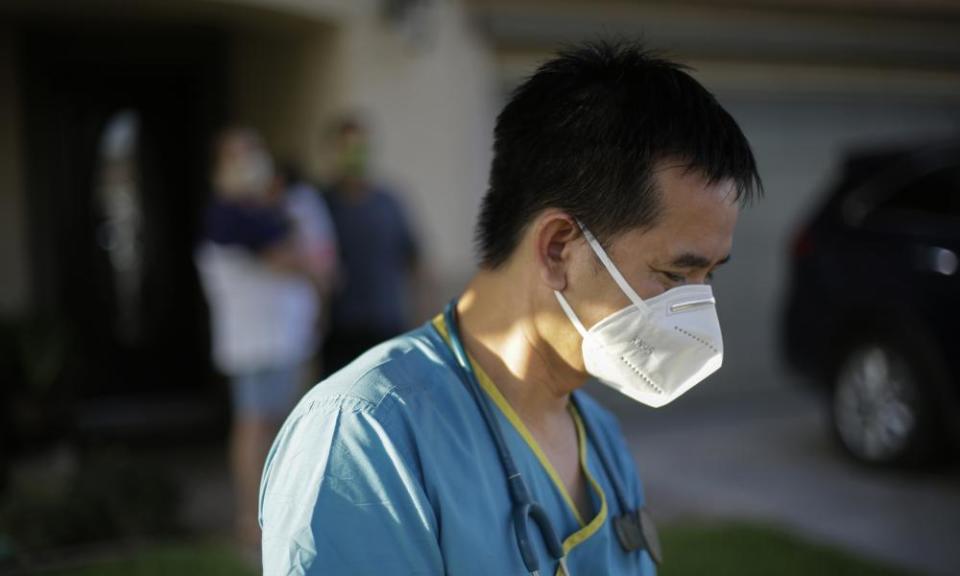Medics condemn Trump's 'dangerous' Covid comments

Doctors and health workers in the US have reacted angrily to Donald Trump’s assertion that people should “get out there” and not fear Covid-19 after he returned to the White House from a military hospital on Monday.
The president was accused by healthcare professionals of not only appearing callous about the 210,000 people in the US who have died of coronavirus but also of undermining public health efforts.
Dr William Schaffner, an infectious disease specialist at Vanderbilt University Medical School, told the New York Times the president’s message was “dangerous” because it would encourage his followers – many of whom already refuse to wear masks and downplay the seriousness of the pandemic – to ignore basic recommendations to keep themselves safe.
“It will lead to more casual behaviour, which will lead to more transmission of the virus, which will lead to more illness, and more illness will lead to more deaths,” Schaffner said.
Dr Arjun Kaji, a Tallahassee radiologist who lost both his parents to coronavirus, said: “This is the most callous and tone-deaf pronouncement thing I’ve heard any president say.
“Don’t let it dominate your life? Two hundred thousand people didn’t get the chance not to. They suffered through shortages of PPE in the people taking care of them, didn’t have access to experimental therapies, didn’t get to be taken on joyrides outside of the hospital.
“My father, who overcame so many physical, cultural and societal obstacles in the course of his life as an immigrant who became a doctor, husband and father, didn’t get a chance. And President Trump continues to give the wrong advice to the nation.”
Alongside his daughter, Maddelena Kaji, Kaji has made a short documentary film about the lives and deaths of his parents from Covid. Maddelena Kaji described Trump’s tweets as being like “a slap in the face”.
Dr Tien Vo, who has administered more than 40,000 coronavirus tests at his clinics in California’s Imperial County, told Associated Press: “Oh, my Lord. That’s a very bad recommendation from the president.”

Craig Spencer, the director of global health in emergency medicine at New York-Presbyterian/Columbia University Medical Center, tweeted: “You [Trump] told us ‘Don’t be afraid of Covid’. But right now – as cases rise all across the country yet again – teachers and healthcare providers are putting themselves at risk because you treated this as a political threat, not a public health crisis.
“210k Americans have died. We held their hands & called their families over grainy video connections so they could see their last breaths. Your lack of empathy is the single greatest threat to the American people. You have failed us.”
Dr Janet Baseman, an epidemiologist at the University of Washington’s school of public health, stressed that the president had access to treatment far beyond that afforded to the average American. She wrote in an email: “The president has access to the best medical care in the world, along with a helicopter to transport him to the hospital as needed. The rest of us who don’t have such ready access to care should continue to worry about Covid, which has killed a million people around the world in just a handful of months.”
Dr Leon McDougle, the president of the National Medical Association, reiterated that the coronavirus outbreak had disproportionately affected the Black and Latino populations of the US, with Black Americans being diagnosed with coronavirus at twice the rate of their white counterparts.
He said of Trump’s message: “When you speak to families in those communities, I’m sure there will be a difference of opinion in regards to whether this is to be thought of as insignificant.”

